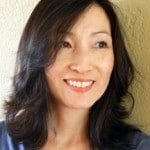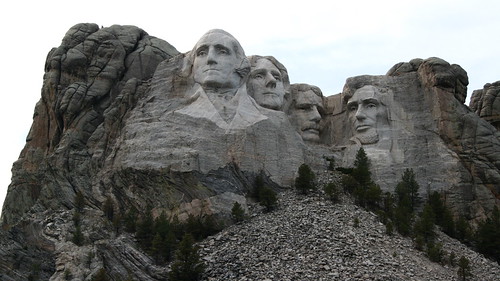It was Sunday, and we were on vacation. The beautiful azure Pacific Ocean beckoned us. The sun wore a bright dress.
My husband learned the closest church service was at a large hotel’s chapel. Our daughter was not happy about attending church as it reduced her beach playtime.
We arrived a few minutes late, but before the speaker began. The four pews on both sides were full, and several people sat by two open windows and another door. A husband and wife, the greeters, kindly offered their seats on the window ledge. They insisted. We thanked them, and we quickly sat down.
The speaker had grey hair, and a kind smile. A brown leather belt cinched his slightly oversized blue khaki pants. We were sitting slightly behind, and to the right of the speaker.
After a brief introduction, he turned sideways, looked at us, and said something about how hard it was to learn English as a second language. We were the only Asians in the chapel.
I was stunned he assumed English was our second language, without even speaking to us. He relied only on the way we looked: black hair and brown almond-shaped eyes.
I was also surprised because the town (we were visiting) has residents of different ethnicities. Maybe they don’t mingle much. I don’t know.
This is not the first time I have had someone assume I was not an American, and that English was not my first language.
Once a woman asked aloud, at a scenic lookout, what was the name of the fourth president on Mount Rushmore? She listed three names, and I answered, “Thomas Jefferson.” Without thanking me, or even acknowledging my presence, she turned to her friend, and said in a loud voice, “She knows our American history better than we do.”
Hmm. She actually said, “She knows our American history better than we do.” Apparently, I was not part of her “we.”
I was so shocked I did not reply, before she and her friend walked away. I had spoken to her in perfect English. I know, people can speak perfect English even if it is not their first language. I know there are also Americans, for whom, English is not their first language, such as my parents.
Yet it amazed me it never entered her mind that I could be an American. Maybe she hasn’t had much exposure to Asians, who are also Americans. Because I was born and live in California, I am not used to someone presuming I am not an American.
This time, in the chapel by the sea, I surprised myself by speaking up…in real time. I replied, “English is my first language.” My parents taught me to not speak my mind, so it was a big moment for me. The speaker looked startled. He crouched down, and pretended to hide behind the lectern, while the audience laughed.
Without pausing, he switched his example to how hard it would be for him to learn Mandarin, because there are four different tonal differences that can change a single sound into four different words. He glanced at us every now and then as he spoke.
He never apologized.
The whole time he spoke, I had an internal dialogue with myself while also praying as I felt angry. The fact I recognized I felt angry, was significant as I was raised to ignore and/or stuff my anger, even if it stemmed from legitimate hurt and fear. His words reminded me of past experiences where I was teased because of what I looked like: Asian.
I don’t think the speaker meant to be hurtful so it made it easier to forgive him. Unfortunately, his comment revealed a certain way of judging someone, who is not white. I doubt he would have made the same assumption about a non-Asian visitor.
Thankfully, our daughter has not yet experienced overt racism or teasing, but as a realist, I know she probably will at some point. Sadly, she may experience it within a faith community. Our local church and her public school are ethnically diverse. She has not personally seen how people can tease or misjudge one based only on appearance.
If she does face prejudice, I pray she knows God made her Asian and American for His good purposes (Romans 8:28). I pray she celebrates the person God made her (Psalm 139:14).
I pray the speaker and the audience left with more awareness about not assuming something about someone because of one’s ethnicity.
Love does not assume anything about someone based on one’s appearance. Love asks, then listens.
Thank you, Deidra, for inviting me to guest post, and for creating this series as a way for our faith community to discuss what can be a sensitive topic. It was out of my comfort zone to write this piece, but I pray my words will foster greater understanding.
:::
 Dolly read a gospel tract when she was eight years old, and she asked Jesus to forgive her of her sins. She also asked Jesus to sit on the throne of her heart. Since that time, she has been slowly and steadily falling more in love with Jesus as she learns more about His heart. She married her high school sweetheart, and they have been blessed with one answer to prayer, daughter. They love to drive to a dog-friendly beach with their puppy.
Dolly read a gospel tract when she was eight years old, and she asked Jesus to forgive her of her sins. She also asked Jesus to sit on the throne of her heart. Since that time, she has been slowly and steadily falling more in love with Jesus as she learns more about His heart. She married her high school sweetheart, and they have been blessed with one answer to prayer, daughter. They love to drive to a dog-friendly beach with their puppy.
She blogs at Soul Stops, where she writes about what God shows her when she stops, and listens. You can connect with her at on her blog’s Facebook page at or on Dolly’s personal Facebook timeline. However, you are more likely to find her on Twitter.
:::
Note from Deidra: The idea for “Going There” came about as a result of the 31 Days In My Brown Skin series I wrote in October, 2012. (You can read those posts here.) The series generated a lot of valuable dialogue, and when the thirty-one days were over, it felt as if the conversation wasn’t done. So, I invite you to share your story as it relates to issues of race, ethnicity, and culture in your every day life.
The goal of “Going There” is to encourage ongoing dialogue about topics of race, ethnicity, and culture in a way that is thoughtful and that shows respect, with the goal of advancing our understanding of the beautiful diversity in the humanity that surrounds us. Interested in sharing your story? Start here.
Photo of Mount Rushmore, courtesy of Flickr Creative Commons User: Designs by Kari http://www.flickr.com/photos/designsbykari/5875555842/
